
Eunhye Ahn
Assistant Professor, Brown School
PhD, University of Southern California
- Email: ahne@wustl.edu
Eunhye Ahn’s research focuses on leveraging data to improve the outcomes of children and families and advance broader social goals of equity and justice. She is particularly interested in informing child welfare policy and practice by utilizing data science and promoting equitable child welfare outcomes through rigorous examination of racial and socioeconomic disparities.

Ruopeng An
Assistant Professor, Brown School
PhD, Pardee RAND Graduate School
- Email: ruopeng@wustl.edu
Ruopeng An conducts research to assess environmental influences and population-level interventions on weight-related behaviors and outcomes throughout the life course. In particular, his work assesses socioeconomic determinants and policies that impact individuals’ dietary behavior, physical activity, sedentary lifestyle, and adiposity in children, adults of all ages, and people living with a disability.
The goal of An’s research has been to develop a well-rounded knowledge base and policy recommendations that can inform decision making and the allocation of resources to combat obesity.

Dennis Barbour
Professor, Biomedical Engineering
MD, Johns Hopkins University
PhD, Johns Hopkins University
- Email: dbarbour@wustl.edu
Dennis Barbour’s research interests include auditory processing, cognitive neuroscience, machine learning and medical informatics. Most recently he has developed new machine learning methods for rapidly and thoroughly evaluating perception and cognition. These new tests are not only useful for exploring normal nervous system function, but also for diagnosing disorders. The principles contributing to these successful diagnostics may also lead to effective neurotherapeutics, alone or when coupled with drug or device therapies.

Deanna Barch
Professor, Psychological & Brain Sciences
Vice Dean of Research, College of Arts & Sciences
PhD, University of Illinois
- Email: dbarch@wustl.edu
Dr. Barch’s current research is focused on understanding the interplay among cognition, emotion, and brain function to better understand the deficits in behavior and cognition found in illnesses such as schizophrenia and depression. She is involved with a number of “population neuroscience” projects such as the Adolescent Brain and Cognitive Development study and the Human Connectome Projects that afford the opportunity to develop and apply novel data analytic approaches to understand brain-behavior relationships both within densely-sampled individuals and across large populations.
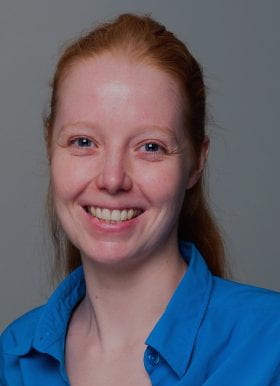
Janine Bijsterbosch
Assistant Professor, Radiology
PhD, University of Sheffield
Janine Bijsterbosch’s multidisciplinary background combines advanced computational MRI analysis tools with experience in clinical applications such as depression and anxiety. She heads the Personomics Lab, which aims to understand how brain connectivity patterns differ from one person to the next, by studying the “personalized connectome.” Using population datasets such as the UK Biobank, the lab adopts cutting-edge analysis techniques to study functional connectivity networks and their role in behavior, performance, mental state, disease risk, treatment response and physiology.

Ryan Bogdan
Associate Professor, Psychological & Brain Sciences
PhD, Harvard University
- Email: rbogdan@wustl.edu
Bogdan’s research examines how genomic variation and environmental experience contribute to individual differences in neural phenotypes, behavior, and psychopathology.
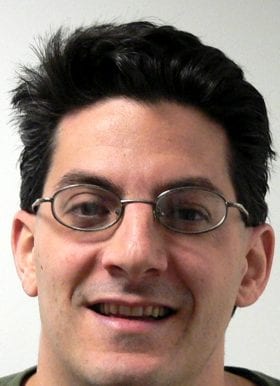
Todd Braver
Professor, Psychological & Brain Sciences, Radiology, and Neuroscience
PhD, Carnegie Mellon University
- Email: tbraver@wustl.edu
Dr. Braver’s research focuses on the neural, computational, and psychological mechanisms that give rise to cognitive control (regulation of thought and behavior based on actively maintained cognitive goals). Current projects examine individual differences in cognitive control function and interactions with affective and motivational processes, through acquisition of large-scale neuroimaging datasets (which include longitudinal and twin-based assessment). These datasets provide unique opportunities to identify trait and state markers of cognitive control via novel data analytic approaches, including neural pattern classification and activation-based dynamical signatures.

Michael Brent
Professor, Computer Science & Engineering
PhD, Massachusetts Institute of Technology
- Email: brent@wustl.edu
Michael Brent’s research lab is developing and applying mathematical and computational methods for mapping gene regulation networks, modeling them quantitatively, and synthesizing new network designs in living cells. This work includes basic research aimed at understanding how cells process and respond to information as well as applications to the study of infectious disease and the study of human genetics. See the lab webpage, https://mblab.wustl.edu for more information on their research.

Derek Brown
Associate Professor, Brown School
PhD, Duke University
- Email: dereksbrown@wustl.edu
Derek Brown’s research focuses on costs, access to care, quality, and disparities among Medicaid populations—including physician payment, housing instability, and child maltreatment. He also uses discrete choice experiments to analyze preferences for health care and outcomes, such as screening and vaccination.
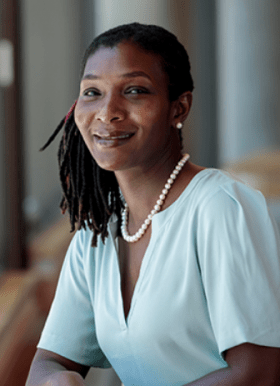
Sheretta Butler-Barnes
Associate Professor, Brown School
PhD, Wayne State University
- Email: sbarnes22@wustl.edu
Butler-Barnes received her PhD and MA from Wayne State University in psychology and a BS in psychology from Michigan State University. The two lines of her research agenda include 1) Strengths-Based Assets of Black Adolescents Project which explores how Black youth draw on personal and cultural assets and resources to thrive despite challenges to their identities from institutional and personal experiences of racism; and, 2) Celebrating Strengths of Black Girls Project focuses on advancing equitable learning environments for Black women and girls.

David Carter
Associate Professor, Political Science
PhD, University of Rochester
- Email: davidcarter@wustl.edu
David Carter’s research is in the field of international relations, with a focus on interstate conflict substate political violence.

Yixin Chen
Professor, Computer Science & Engineering
PhD, University of Illinois
- Email: ychen25@wustl.edu
Yixin Chen’s research interests are in the general areas of nonlinear optimization, artificial intelligence, data warehousing and data mining. He is particularly interested in large-scale constrained nonlinear optimization in discrete, continuous and mixed-integer spaces.

Dino Christenson
Associate Professor, Political Science
PhD, Ohio State University
- Email: dinopc@wustl.edu
Dino Pinterpe Christenson studies American political behavior and quantitative methods. His recent work explores presidential voting behavior, campaign dynamics in primary elections, the coalition strategies of interest groups, and public opinion and the media environment of institutional outcomes

Barak Cohen
Professor, Genetics
PhD, Harvard University
- Email: cohen@wustl.edu
Our group studies how information encoded in the human genome specifies when, where, and to what levels genes are expressed. We seek to understand the features of DNA sequences that control how genes are expressed. To this end, we are borrowing techniques from artificial intelligence to model how strings of short DNA sequences interact to form larger functional units that control gene expression.

Brett Drake
Professor, Brown School
PhD, University of California, Los Angeles
- Email: brettd@wustl.edu
Brett Drake researches matters of child welfare with a focus on early intervention cases of child neglect as well as the connections between socio-environmental conditions and child neglect. His current research analyzes census and child protective data to assess the efficacy of protective and preventative services.
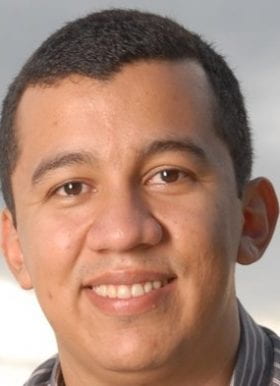
Ted Enamorado
Assistant Professor, Political Science
PhD, Princeton University
- Email: ted@wustl.edu
I am an Assistant Professor in Political Science at Washington University in St. Louis. I hold a PhD in Politics (Political Economy program) from Princeton University, where I was affiliated to the Program for Quantitative and Analytical Political Science (Q-APS), the Research Program in Political Economy, and the Fellowship of Woodrow Wilson Scholars. My fields of specialization are Political Economy and Political Methodology.

Randi Foraker
Associate Professor of Public Health, Brown School
PhD, The University of North Carolina at Chapel Hill
- Email: randi.foraker@wustl.edu
Dr. Foraker is the Director of the Center for Population Health Informatics at the Institute for Informatics (I2) and an Associate Professor of General Medical Sciences at Washington University School of Medicine in St. Louis. She specializes in the design of population-based studies and the integration of electronic health record data with socioeconomic indicators, and is well recognized in the field of cardiovascular disease epidemiology. Her recent research has focused on the application of clinical decision support to complement risk scoring in primary care, cardiology, and oncology.
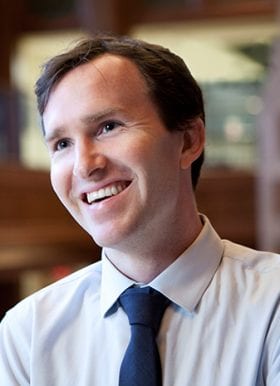
Patrick Fowler
Track Chair, Social Work & Public Health
Associate Professor, Brown School
PhD, Wayne State University
- Email: pjfowler@wustl.edu
Patrick Fowler’s research aims to inform developmentally sensitive public and programmatic policy that supports socioeconomically marginalized families. This work applies rigorous methodology to understand the mechanisms through which housing stabilization promotes healthy child development.

Roman Garnett
Associate Professor, Computer Science & Engineering
PhD, University of Oxford
- Email: garnett@wustl.edu
Professor Garnett’s main research interest is developing new Bayesian machine-learning techniques for sequential decision making under uncertainty.

Aimilia Gastounioti
Assistant Professor, Radiology
PhD, National Technical University of Athens
- Email: a.gastounioti@wustl.edu
Aimilia Gastounioti’s research combines elements of image analysis, machine learning/artificial intelligence, and informatics to build technologies with a potential for clinical impact in advancing breast cancer screening and prevention. She heads the Breast Image Computing Lab, that brings together a multidisciplinary team of scientists and physicians with the aim to advance computational breast imaging research.

Chris Gill
Professor, Computer Science & Engineering
DSc, Washington University in St. Louis
- Email: cdgill@wustl.edu
Professor Gill’s research focuses on assuring properties of distributed real-time and embedded systems in which software complexity, unpredictable environments, and heterogeneous platforms demand novel solutions that are grounded in sound theory.
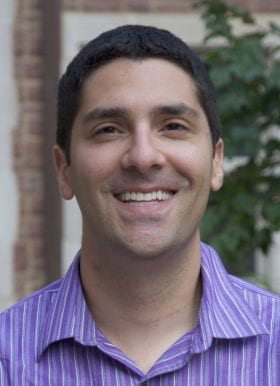
Brian Gordon
Assistant Professor, Radiology
PhD, University of Illinois
- Email: bagordon@wustl.edu
Dr. Gordon’s research focuses on understanding healthy aging and neurodegenerative diseases such as Alzheimer Disease. His primary research questions are 1) what can neuroimaging (MRI and PET) and biofluid (CSF and blood) data tell us about biological changes occurring in the brain? 2) How do these changes relate to cognition and the risk for developing dementia? 3) What genetic, environmental, and lifestyle factors influence the aging brain? The high dimensionality of imaging data, the richness of multimodal measures, and the longitudinal nature of clinical cohort studies present challenging analytical questions that can be best answered using the novel analytical approaches which are at the heart of the Computational & Data Sciences PhD program.

Roch Guerin
Professor and Chair, Computer Science & Engineering
PhD, California Institute of Technology
- Email: guerin@wustl.edu
Roch is widely recognized for his contributions to understanding the fundamentals of data network design and how networks can be designed to provide desired quality of service guarantees.

Shenyang Guo
Professor, Brown School
PhD, University of Michigan – Ann Arbor
- Email: s.guo@wustl.edu
Shenyang Guo is the author of numerous research articles in child welfare, child mental health services, welfare, and health care. He has expertise in applying advanced statistical models to solving social welfare problems and has taught graduate courses that address event history analysis, hierarchical linear modeling, growth curve modeling, propensity score analysis, and program evaluation.
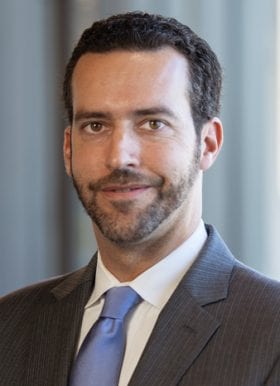
Ross Hammond
Professor, Brown School
PhD, University of Michigan
- Email: rhammond@wustl.edu
Hammond’s research applies complex systems tools to generate new insights into the social dynamics that drive many difficult policy problems, as well as to identify potential leverage points or windows for intervention.

Jenine Harris
Associate Professor, Brown School
PhD, Saint Louis University
- Email: harrisj@wustl.edu
Jenine Harris focuses on closing the gap between discovery and delivery in her methodological and substantive areas of research, and in her teaching and service. Her methodological area of expertise is social network analysis, with a particular interest in statistical modeling of social networks, which she has used to identify gaps in path between discovery and delivery in scientific research and public health practice.

Chien-Ju Ho
Assistant Professor, Computer Science & Engineering
PhD, University of California, Los Angeles
- Email: chienju.ho@wustl.edu
Professor Ho’s research centers on the design and analysis of human-in-the-loop systems, with a focus on eliciting and aggregating human-generated data.

Jiaxin Huang
Assistant Professor, Computer Science & Engineering
PhD, University of Illinois at Urbana-Champaign
- Email: jiaxinh@wustl.edu
Jiaxin Huang’s research broadly lies in the intersection of natural language processing and machine learning. She is especially interested in understanding the properties of language models and improving their training and inference, especially in a low-resource setting. Her current research focuses on improving the trustworthiness of language models with retrieval augmentation and uncertainty estimation, and developing methods to enhance the generic reasoning ability of language models.
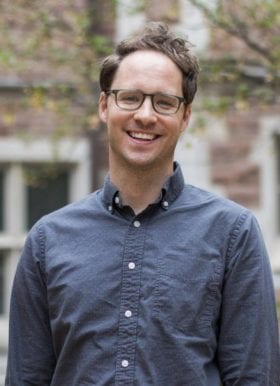
Josh Jackson
Track Chair, Psychological & Brain Sciences
Associate Professor, Psychological & Brain Sciences
PhD, University of Illinois, Urbana-Champaign
- Email: j.jackson@wustl.edu
Josh Jackson’s research focuses on the assessment of individual differences in an effort to better understand the link between individual differences and life outcomes (e.g., premature mortality, job market success). His research routinely combines existing large scale longitudinal datasets with additional multimodal data sources ranging from broad country/county/census tract data to more “boutique” datasets such as intensive time series data and biomarker assays. Frequently used quantitative methods include: Bayesian multi-level models, IRT, SEM, and network models.

Nathan Jacobs
Professor, Computer Science & Engineering
PhD, Washington University in St. Louis
- Email: jacobsn@wustl.edu
Nathan Jacob’s research centers on developing learning-based algorithms and systems for extracting information from large-scale image collections. He has applied this expertise in many application domains, with a particular focus on geospatial and medical applications. He is a member of the Institute for Biomedical Informatics and owner of Multidomain Vision Research LLC, a research and software development firm that specializes in novel algorithms in computer vision, medical imaging and remote sensing.

Kim Johnson
Associate Professor, Brown School
PhD, University of Minnesota
- Email: kijohnson@wustl.edu
Dr. Johnson’s research is primarily focused on disparities in access to care among pediatric and young adults diagnosed with cancer. She has published extensively using large administrative data including surveillance data from the Surveillance, Epidemiology and End Results program. She has also recently become engaged in activities that aims to improve the reproducibility of scientific results. In addition to her research activities, she leads the Brown School epidemiology and biostatistics specialization and teaches two epidemiology courses in the Brown School Masters of Public Health (MPH) program: Foundations in Public Health: Epidemiology and Advanced Data Analysis.

Melissa Jonson-Reid
Professor, Brown School
PhD, University of California, Berkeley
- Email: jonsonrd@wustl.edu
Dr. Jonson-Reid’s primary interest is understanding how responses to childhood abuse and neglect can be improved to support positive behavioral, educational and health outcomes. To look for targets of opportunity for services and policy change, much of her research involves the construction and analysis of integrated multi-agency, longitudinal administrative data. Her work has also included linking administrative data sources with census, policy and primary data collection elements.

Brendan Juba
Associate Professor, Computer Science & Engineering
PhD, Massachusetts Institute of Technology
- Email: bjuba@wustl.edu
Brendan Juba’s work seeks to determine when and whether various integrated learning and inference tasks can be solved by efficient algorithms. Frequently, such an integrated task can be solved well in various respects even though the individual learning or inference tasks may be ill-posed or intractable. Beyond classical deductive inference tasks, this includes richer tasks such as context-specific inferences, and tasks to formulate plausible hypotheses, or conditions and/or subpopulations under which structures of interest appear in the given data. For example, this includes problems of identifying conditions where data is fit well by a model from a given, simple family. He has also worked on a theory of communication without common standards.

Thomas Kannampallil
Associate Professor, Anesthesiology
Associate Professor, Computer Science and Engineering
PhD, University of Illinois
- Email: thomas.k@wustl.edu
Thomas Kannampallil’s research interests are at the intersection of computer science, cognitive science, and clinical informatics. Specifically, his research focuses on developing and evaluating computational tools using artificial intelligence tools for improving clinical decision making, physician well-being, and patient safety. His research is currently funded by National Institute of Aging, National Library of Medicine and Agency for Healthcare Research and Quality.

Caitlin Kelleher
Associate Professor, Computer Science & Engineering
PhD, Carnegie Mellon University
- Email: ckelleher@wustl.edu
Caitlin Kelleher is a researcher in Human-Computer Interaction and focuses on designing new kinds of programming environments and languages that democratize programming.

Wouter Kool
Assistant Professor, Psychological & Brain Sciences
PhD, Princeton University
- Email: wkool@wustl.edu
Kool’s research explores the interaction between cognitive control, decision making, and reinforcement learning. In the Control and Decision-Making Lab, his team approaches these issues by combining insights from behavioral experiments, computational modeling, and neuroimaging. Recent research from the lab examines how the brain implements effort-based decision making, how the mind arbitrates between multiple choice strategies, and how people learn how to adapt such arbitration processes in dynamic learning contexts.

Matt Kreuter
Professor, Social Work & Public Health
PhD, University of North Carolina, Chapel Hill
- Email: mkreuter@wustl.edu
Kreuter is a leading national public health expert in the field of health communications. He joined the Brown School in 2008 and advances the school’s Master of Public Health degree as associate dean for public health.

Albert Lai
Associate Professor and Deputy Director, Institute for Informatics
Associate Professor, Computer Science & Engineering
PhD, Columbia University
- Email: amlai@wustl.edu
Dr. Lai is the Deputy Director, Institute for Informatics (I2) and Chief Research Information Officer for the School of Medicine. He is also an Associate Professor of General Medical Sciences at the Washington University School of Medicine in St. Louis. He specializes in the development of research informatics infrastructure and is well recognized in the fields of clinical research informatics and consumer health informatics. His recent research has focused on the application of natural language processing, temporal reasoning and information fusion to generate a longitudinal computable phenotype to support clinical trial prescreening.
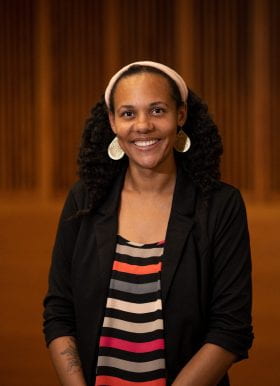
Seanna Leath
Assistant Professor, Psychological and Brain Sciences Dept.
PhD, University of Michigan
- Email: leath@wustl.edu
Seanna Leath’s research focuses on variation in the family and school-based experiences of Black women and girls, with a particular focus on identity development and wellbeing. She uses healing justice frameworks and community-based methodologies to examine topics related to intersectionality, discrimination and stigma, and sociocultural practices within Black families.

Matthew Lew
Associate Professor, Electrical & Systems Engineering
PhD, Stanford University
- Email: mdlew@wustl.edu
My lab works on nanoscale computational imaging, in which joint design and optimization of a hardware imaging system and software algorithms are essential for unlocking new capabilities for studying biology, chemistry, and physics at the nanoscale. My group, among other things, develops new computational tools for image reconstruction, as well as the reliability and statistical confidence of these reconstructions. Our methodologies fuse physics-based models and data-driven models to accomplish these tasks.

Jr-Shin Li
Professor, Electrical & Systems Engineering
PhD, Harvard University
- Email: jsli@wustl.edu
Prof. Jr-Shin Li works at the intersection of dynamical systems, control, and data science with broad applications ranging from biology and quantum physics to public health. His research is focused on control analysis, computation, optimization, and learning of high-dimensional complex systems. Current research projects at Prof. Li’s lab include the exploration and development of theory- and data-driven methods for controlling and analyzing population systems and complex networks, computational algebra and geometry approaches to learning dynamic structures and features from high-dimensional data, and topological data science and engineering techniques for data mining, reduction, and manifold learning.
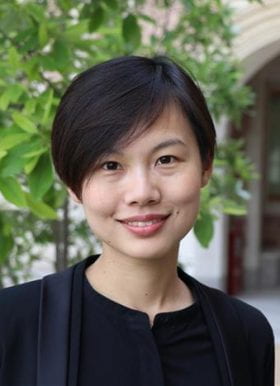
Fangqiong Ling
Assistant Professor, Energy, Environmental & Chemical Engineering
PhD, University of Illinois at Urbana-Champaign
- Email: fangqiong@wustl.edu
Fangqiong Ling leads a computational and experimental lab to study bacterial colonization and transmission at the boundary of built and natural environments. She explores microbiomes as environmental sensors and public health sentinels.
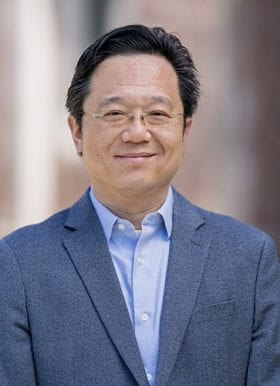
Chenyang Lu
Professor, Computer Science & Engineering
PhD, University of Virginia
- Email: lu@wustl.edu
Chenyang Lu’s research interests include real-time embedded systems, wireless sensor networks, Internet of Things and cyber-physical systems.

Christopher Lucas
Assistant Professor, Political Science
PhD, Harvard University
- Email: christopher.lucas@wustl.edu
Christopher Lucas develops and applies models for the analysis of massive quantities of text, imagery, audio, and video, in order to uncover how and what people learn about politics. Substantively, he is broadly interested in large-scale summaries of political information online, and is currently studying how online newspapers report on crime and corruption, and, separately, how candidates for elected office communicate with voters through advertisements.

Doug Luke
Professor, Brown School
PhD, University of Illinois
- Email: dluke@wustl.edu
Douglas Luke is a leading researcher in the areas of public health policy, systems science and tobacco control. Luke directs work focused primarily on the evaluation, dissemination and implementation of evidence-based public health policies.

Phillip Marotta
Assistant Professor, Brown School
PhD, Columbia University
- Email: phillip.marotta@wustl.edu
Phillip Marotta’s research focuses on the impact of the criminal justice system on disparities in public health, with an emphasis on substance use treatment interventions in justice-involved populations and the HIV care continuum for justice-involved persons with substance use disorders. Marotta examines medication-assisted treatments for opioid use disorder (OUD) in jails and prisons. A current project evaluates the effects of methadone maintenance during custody on recidivism and overdose among recently discharged individuals.

Andrew D. Martin
Professor, Political Science and Law
Chancellor, Washington University in St. Louis
PhD, Washington University in St. Louis
- Email: admartin@wustl.edu
Andrew D. Martin specializes in quantitative political methodology and empirical legal studies. His methodological work focuses on Bayesian statistics, Markov chain Monte Carlo methods, and statistical computation. He has also done extensive work on measurement models and models of discrete choice. His substantive work looks primarily at decision-making in courts, especially the U.S. Supreme Court.

Timothy McBride
Professor, Brown School
PhD, University of Wisconsin – Madison
- Email: tmcbride@wustl.edu
Timothy McBride studies major economic policy questions in health insurance, health reform, rural health care, Medicare and Medicaid policy, health economics, and access to health care.
McBride’s research and analysis centers on the effects of health reform at the state and national levels, the uninsured, diabetes policy, Medicare Advantage, and long-term entitlement reform.

Jacob Montgomery
Track Chair, Political Science
Associate Professor, Political Science
PhD, Duke University
- Email: jacob.montgomery@wustl.edu
Jacob Montgomery is an Associate Professor in the Department of Political Science at Washington University in St. Louis. His research is in the areas of political methodology and American politics, with a special interest in political parties.
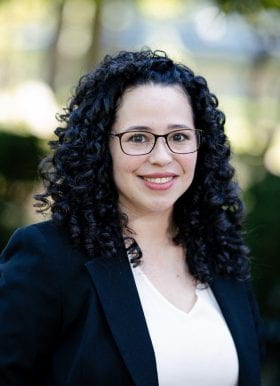
Lucia Motolinia
Assistant Professor, Politcal Science
- Email: luciam@wustl.edu
Lucia Motolinia’s research tries to better understand how electoral institutions affect political behavior, with an emphasis on the mechanisms driving the behavior of individual politicians and parties. She combines observational data, natural experiments, and text-analysis to study the way electoral institutions affect important political outcomes such as political selection, party cohesion, and distributive politics.